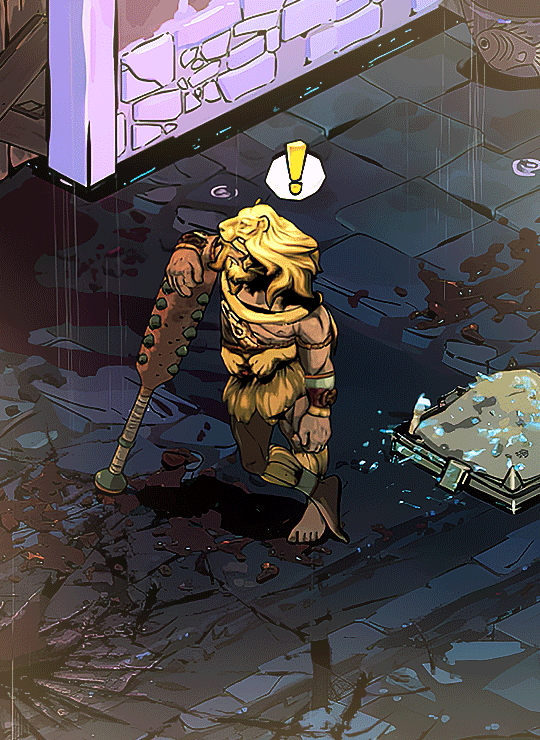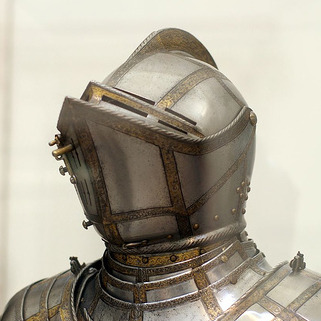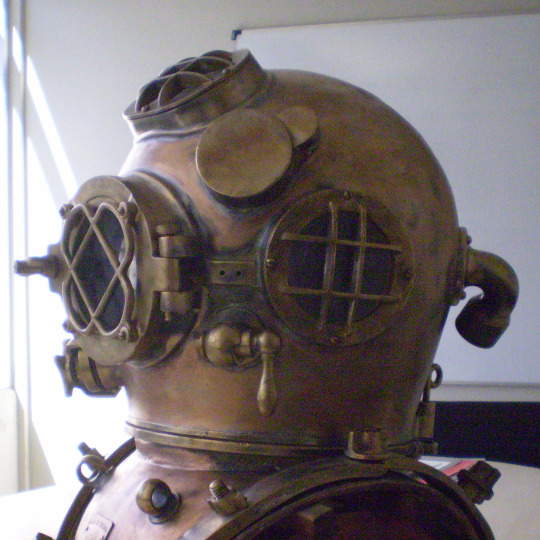Hector lives in my head rent free. Patrochilles.Apollo x adonis supremacy||art acc: @art_from_within
Last active 3 hours ago
Don't wanna be here? Send us removal request.
Text

Since I forgot to save it earlier, I redrew a picture of Tyrael and Impeirus's meme picture!😆
85 notes
·
View notes
Text
Whenever an artist who makes dark content gets outed as a sexual predator people will be like 'aha it was obvious something was up because their work was so dark and nasty' and whenever an artist who makes wholesome content gets outed as a sexual predator people will be like 'aha it was obvious something was up because their work was so aggressively wholesome' and it's like you know I think maybe you can't tell whether or not someone is a predator based on their artistic output.
41K notes
·
View notes
Text
THE SONG OF ACHILLES SPOILERS
Wow.
Chp 30 of The Song of Achilles and I don’t think I have hated Achilles more than at this moment. Yes I physically recoiled when I read his response to Briseis’s subjugation under Agamemnon(would rather let a friend be raped, then bend his knee. I mean I guess she was just an object to flaunt for all those years which yea she was a WOMAN so you know not much high hopes….but still….Wow(2), thought it couldn’t get worse.), his admittance to enjoying war(🤷♀️🗡). Every moment he becomes worse and worse but THIS. This is a new low. Not just low, it’s low’s basement.
Like bro, your old man literally orated a whole ass tale for you. A tale that accurately describes you and your situation point to point. Patroclus is in your feet, begging in an act akin to suppliancy. And he says
“ No…..Anything but this….i c a n n o t.”
BITCH.
BITCH.
He is arguing with partroclus. The ships are ablaze, ajax is wounded. Cleopatra is weeping. God knows how is Briseis, and yet here he is, the aristos achaion acting like a spoilt child who has been denied his favorite meal (which well he is). How blinded he is with his own arrogance.
Then he fucking GREEN LIGHTS the stupid plan by patro. Like bruh have you not read the illiad yet or something?
Good lord I know what is about to come, and it sure is not gonna be Hector’s fault.
24 notes
·
View notes
Text

Like an artist possessed, I drew this in one sitting
723 notes
·
View notes
Text
ARES IS NOT THE PROTECTOR OF WOMEN IN GREEK MYTHOLOGY.
He is never presented as such in any source, there is no evidence such a role was ever assigned to him in any account, and as far as I'm aware this popular yet unattested assertion is born from the echo-chambers of tumblr. In fact quite the opposite could be argued. TW for sexual assault.
This baffling claim seems to originate from a sort of shallow examination of the way Ares "behaves in myth", and the following arguments are the most frequently presented:
1. Ares protects his daughter Alkippe from assault, and is therefore morally opposed to rape. (Apollodorus 3.180, Pausanias 1.21.4, Suidas "Areios pagos", attributed to Hellanikos)
Curiously this argument is never applied to, among other examples: Apollo for defending his mother Leto from Tytios, Herakles for defending Hera from Porphyrion (or his wife Deianeira from Nessos), or Zeus for defending his sister Demeter from Iasion (in the versions where he attacks her), etc. The multiple accounts of rape of the previously mentioned figures did not conflict with these stories in greek thought: they're defending family members or women otherwise close to them. This sort of mentality is not uncommon even in contemporary times, e.g. a warrior may have no ethical problem killing men, but would not want his own family or loved ones to be killed. The same goes here for sexual assault.
2. There are no surviving accounts of Ares sexually assaulting anybody.
The idea that the ancient greeks pictured that, among all the gods, Ares was the only one who shied away from committing rape is baseless and borders on ridiculous. In this case absence of evidence is not evidence of absence.
The majority of surviving records regarding Ares' unions are presented in a genealogical manner, and do not go into details on their nature. This is the case for most works of mythography, where specifics of sexual encounters are to be found elsewhere. However, common motifs present in other accounts of rape also appear in stories concerning Ares' relationships, e.g. tropes like shape-shifting/the use of disguises, the victim being a huntress, secrecy, and the disposal of the concieved child, are to be found in the stories of Phylonome and Astyoche respectively:
Φυλονόμη Νυκτίμου καὶ Ἀρκαδίας θυγάτηρ ἐκυνήγει σὺν τῇ Ἀρτέμιδι: Ἄρης δ᾽ ἐν σχήματι ποιμένος ἔγκυον ἐποίησεν. ἡ δὲ τεκοῦσα διδύμους παῖδας καὶ φοβουμένη τὸν πατέρα ἔρριψεν εἰς τὸν Ἐρύμανθο
"Phylonome, the daughter of Nyktimos and Arkadia, was wont to hunt with Artemis; but Ares, in the guise of a shepherd, got her with child. She gave birth to twin children and, fearing her father, cast them into the [River] Erymanthos." (Pseudo-Plutarch, Greek and Roman Parallel Stories, 36)
οἳ δ᾽ Ἀσπληδόνα ναῖον ἰδ᾽ Ὀρχομενὸν Μινύειον, τῶν ἦρχ᾽ Ἀσκάλαφος καὶ Ἰάλμενος υἷες Ἄρηος οὓς τέκεν Ἀστυόχη δόμῳ Ἄκτορος Ἀζεΐδαο, παρθένος αἰδοίη ὑπερώϊον εἰσαναβᾶσα Ἄρηϊ κρατερῷ: ὃ δέ οἱ παρελέξατο λάθρῃ: τοῖς δὲ τριήκοντα γλαφυραὶ νέες ἐστιχόωντο.
"And they that dwelt in Aspledon and Orchomenus of the Minyae were led by Ascalaphus and Ialmenus, sons of Ares, whom, in the palace of Actor, son of Azeus, Astyoche, the honoured maiden, conceived of mighty Ares, when she had entered into her upper chamber; for he lay with her in secret" (Homer, Iliad 2. 512 ff)
In neither of these cases is a verb explicitly denoting rape used, though it is heavily implied by the context. The focus of the action is on the conception of sons, the nature of the interaction is secondary.
Other examples are found among the daughters of the river Asopos, who where (and here there's no confusion) ravished and kidnapped by different gods to different parts of the greek world, where they found local lines through children borne to their abductors and serve as eponyms. Surviving fragments from Corinna of Tanagra tell us:
"Asopos went to his haunts . . from you halls . . into woe . . Of these [nine] daughters Zeus, giver of good things, took his [Asopos'] child Aigina . . from her father's [house] . . while Korkyra and Salamis and lovely Euboia were stolen by father Poseidon, and Leto's son is in possession of Sinope and Thespia . . [and Tanagra was seized by Hermes] . . But to Asopos no one was able to make the matter clear, until . . [the seer Akraiphen reveals to him] 'And of your daughters father Zeus, king of all, has three; and Poseidon, ruler of the sea, married three; and Phoibos [Apollon] is master of the beds of two of them, and of one Hermes, good son of Maia. For so did the pair Eros and the Kypris persuade them, that they should go in secret to your house and take your nine daughters." (heavily fragmented papyrus. Corinna fr. 654)
"For your [Tanagra's] sake Hermes boxed against Ares." (Corinna fr. 666)
It seems that, similar to the myths of Beroe or Marpessa, the abducted maiden is fought over by two competing "suitors", and though we can infer that the outcome of the story is that Hermes gets to keep Tanagra, apparently by beating Ares in a boxing match, we don't actually know what happened or how it happened. In any case, Ares does mate with another daughter of Asopos, Harpina, who bears him Oinomaos according to some versions (Paus. 5.22.6; Stephanus Byzantium. Ethnica. A125.3; Diodorus Siculus 4. 73. 1). There is little reason to suppose that this encounter wasn't pictured as an abduction like the rest of her sisters.
The blatant statement that each of his affairs was envisioned as consensual is simply not true.
3. He was worshipped under the epithet Gynaikothoinas "feasted by women"
This was a local cult that existed in Tegea, the following reason is given:
"There is also an image of Ares in the marketplace of Tegea. Carved in relief on a slab it is called Gynaecothoenas. At the time of the Laconian war, when Charillus king of Lacedaemon made the first invasion, the women armed themselves and lay in ambush under the hill they call today Phylactris. When the armies met and the men on either side were performing many remarkable exploits, the women, they say, came on the scene and put the Lacedaemonians to flight. Marpessa, surnamed Choera, surpassed, they say, the other women in daring, while Charillus himself was one of the Spartan prisoners. The story goes on to say that he was set free without ransom, swore to the Tegeans that the Lacedaemonians would never again attack Tegea, and then broke his oath; that the women offered to Ares a sacrifice of victory on their own account without the men, and gave to the men no share in the meat of the victim. For this reason Ares got his surname." (Paus. 8.48.4-5)
As emphasised by Georgoudi in To Act, Not Submit: Women’s Attitudes in Situations of War in Ancient Greece (part of the highly recommendable collection of essays Women and War in Antiquity), "it is not necessary to see the operation of an invitation in the bestowal of the epithet Γυναικοθοίνας on Ares". The epithet is ambiguous, and can be translated both as "Host of the banquet of women" or "[He who is] invited to the banquet of women". In any case no act of divine intervention occurs, and the main reason for the women's act of devotion lies principally in recognising their decisive role in the routing of the Lakedaimonians. It's they who preside/participate in the feast of war, the men are excluded.
Also this a local epithet that isn't found anywhere else in Greece. As such it would be worth reminding that not every Ares is Gynaikothoinas, in the same way not every Zeus is Aithiopian, not every Demeter Erinys, and not every Artemis of Ephesos.
4. He was the patron god of the Amazons
He was considered progenitor of the Amazons because of their proverbial warlike nature and love of battle, the same reason he was associated with other "barbaric" tribes, like the Thracians or the Scythians. In this capacity he was also appointed as a suitable father/ancestor for other violent and savage characters who generally function as antagonists (e.g. Kyknos, Diomedes of Thrace, Tereos of Thrace, Oinomaos, Agrios and Oreios, Phlegyas, Lykos etc.). Also he was by no means the only god connected with the Amazons (they were in fact especially linked to Artemis, see Religious Cults Associated With the Amazons by Florence Mary Bennett, if only for the bibliography).
Similarly, Poseidon was considered patron and ancestor of the Phaiakians mainly because of their mastery over the art of seafaring (and was curiously also credited in genealogies as father to monsters and other disreputable figures).
On another note I have found no sources that claim he taught his amazon daughters how to fight, as I've seen often mentioned (though I admit I'd love to be proven wrong on that point).
5. Finally, the last reason Ares could never be portrayed as a protector of women is because of his divine assignation itself
The uncountable references to his love of bloodshed and man-slaying don't just stop short of the battlefield, but continue on to the conclusion and intended purpose of most waged wars in antiquity: the sacking of the city. The title Sacker of Cities as an epithet of Ares (though it is by no means exclusive to him) is encountered numerous times and in different variations (eg. τειχεσιπλήτης or πτολίπορθος), and the meaning behind the epithet is plain. Though it is hard to summarise without being reductionist, the sacking of a city entails the plundering of all its goods, the slaughtering of its men, and the sistematic raping and enslavement of the surviving women (to name only a small few of the literary references see The Iliad, The Trojan Women or The Women of Trachis). There is little need to emphasise that war as concieved of in ancient greece, especifically the brutal aspects of war Ares is most often associated with, directly entailed sexual violence against women as one of it's main concerns. The multiple references to Ares being an unloved or disliked deity are because of this, because war is horrifying (not because his daddy is a big old meany who hates him for no reason, Zeus makes very clear the motive for his contempt in the Iliad (5. 889-891): "Do not sit beside me and whine, you double-faced liar. To me you are most hateful of all gods who hold Olympos. Forever quarreling is dear to your heart, wars and battles.")
Ares was only the protector of women inasmuch as he could be averted or repelled (e.g. surviving apotropaic chants):
"There is no clash of brazen shields but our fight is with the war god, a war god ringed with the cries of men, a savage god who burns us; grant that he turn in racing course backward out of our country’s bounds, to the great palace of Amphitrite or where the waves of the thracian sea deny the stranger safe anchorage. Whatsoever escapes the night at last the light of day revisits; so smite him, Father Zeus, beneath your thunderbolt, for you are the lord of the lightning, the lightning that carries fire." (Shophocles, Oedipus Tyrannos, 190-202)
"And let no murderous havoc come upon the realm to ravage it, by arming Ares—foe to the dance and lute, parent of tears—and the shout of civil strife." (Aeschylus, Suppliant Women 678)
~~~~~
All that being said, this is a post about Ares as conceptualized and attested in ancient sources, made specifically in response to condescending statements about how "uhmmm, actually, in greek mythology Ares was a super-feminist himbo who was worshipped as the protector of women and was hated by his family for no reason, you idiot". It is factually incorrect. HOWEVER, far be it from me to tell anyone how they have to interact with this deity. Be it your retellings, your headcannons or your own personal religious attachments and beliefs towards Ares, those are your own provinces and prerogatives, and not what was being discussed here at all (I personally love art where Ares and Aphrodite goof around, or retellings where he plays with his daughters, or headcannons that showcase his more noble sides, etc.)
~~~~~
I've seen that other people on tumblr have made similar posts, the ones I've seen were by @deathlessathanasia and @en-theos . I have no idea how to link their posts, but they're really good so go check them out on their pages!
1K notes
·
View notes
Text
I'm gonna say something not everyone will like (criticism is accepted)- romanticizing done by slb in his films and series is not a negative point. He's a man creating art and it's his choice how he wishes to do that. If people defended sati after seeing jauhar in Padmavat, that's on their conscience. If people wants to have an aesthetic life of tawaif after seeing Heeramandi, then they missed the part where Alam ran away from her house just to not become a tawaif. How is that on bhansali?
38 notes
·
View notes
Text


'chalka jaye jism se makhmali nasha, karde khali pi pi ke pyala ye bhara, katra katra mera bekabu ho raha, teri ijazat bina dil mera, tere dil main jhaake...' — tilasmi bahein | heeramandi, 2024, dir. sanjay leela bhansali.
386 notes
·
View notes
Text


HERACLES, Mightiest of Men Hades II (2024 - EA) dev. Supergiant Games
7K notes
·
View notes
Text

New comic for @beastalchemistva !!! Check out his comic dub of it HERE
3K notes
·
View notes
Text
masks and helmets that hides someone's face in such a way that they become the face themselves my beloved






these are all creatures to me
282K notes
·
View notes
Text
146K notes
·
View notes
Photo






common characters in huan zhu ge ge // legend of ruyi // the story of yanxi palace
emperor qianlong | empress dowager chongqing | empress ulanara | consort ling | consort rong | prince rong
+ bonus

315 notes
·
View notes






